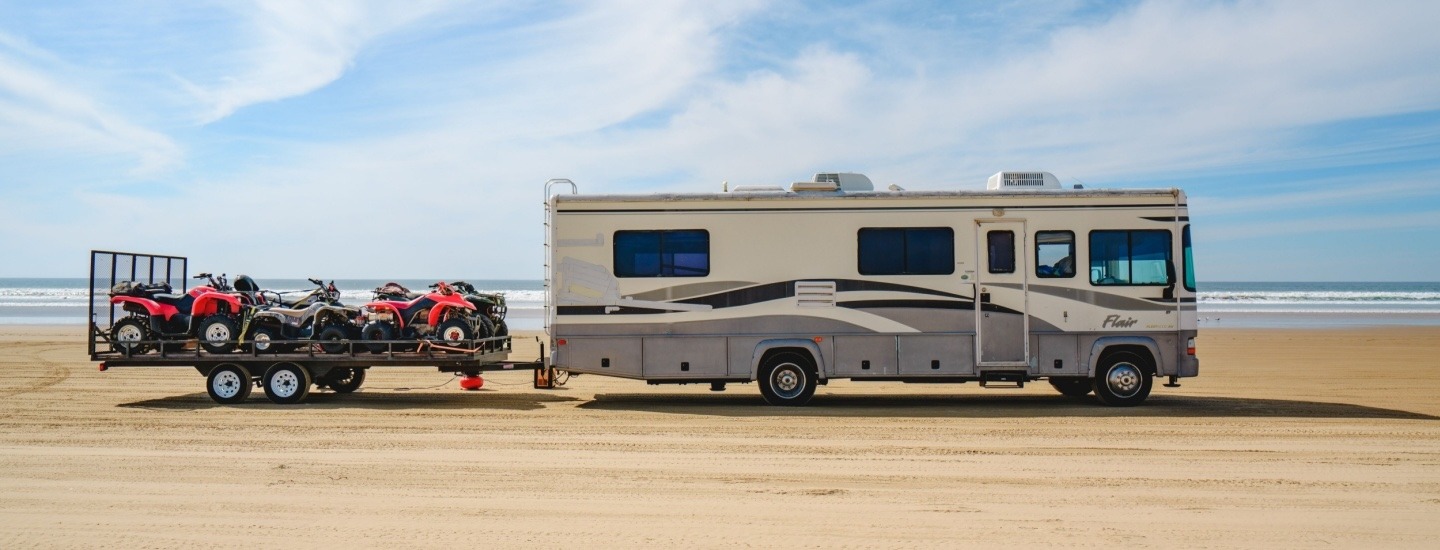
11.20.24
Surfrider and Partners Support Protecting California Dunes from Vehicular Use
By Staley PromAs beachgoers are all too aware, large and healthy sand dune habitats are exceptionally rare today, with ill-conceived coastal development having paved them over. However, Central California is home to one of, if not the, largest intact coastal dune systems – the Guadalupe-Nipomo Dunes Complex.
The California Department of Parks and Recreation operates the Oceano Dunes State Park, one part of the complex, which is comprised of 3,500 acres extending along eight miles of shoreline and dunes up to two miles inland. The dunes are sacred to the Indigenous Northern Chumash, and home to many rare and endangered species.
Yet, despite this unmatched coastal resource, it’s nearly impossible to take a stroll or have a picnic at the beach here. Instead, Oceano Dunes State Park has been turned into an effective highway, with the presence of dangerous and destructive Off-Highway Vehicles (OHV).
In 2021, the California Coastal Commission approved phasing out OHVs at the dunes and limiting street legal vehicles to a one-mile stretch of beach, consistent with its obligations under the California Coastal Act to protect environmentally sensitive habitat areas in the coastal zone, and citing environmental justice concerns regarding impacts to the Northern Chumash Tribal Council and residents of the nearby Oceano and Nipomo communities. OHV user groups sued the Commission, and the consolidated lawsuits are now on appeal.
Today, the Surfrider Foundation and our coalition partners expressed our strong support in court for the Commission’s decision to protect the dunes. Represented by Earthjustice, Surfrider along with the Northern Chumash Tribal Council, Center for Biological Diversity, Oceano Beach Community Association, Sierra Club, and San Luis Obispo Coastkeeper filed an amicus curiae (“friend of the court”) brief with the California Court of Appeal, Second District, in support of the Commission’s authority, and mandate, under the California Coastal Act, to phase out destructive OHV use at the dunes. This decision is necessary in order to protect sensitive habitats, traditional tribal resources and uses, public health and safety, and low-impact recreational uses like walking at the beach.
The amici parties’ brief provides the court with examples of how OHV use impacts the community and keeps other would-be users off the beach. It tells the court how dangerous and destructive OHV use is fundamentally incompatible with California law and has greatly precluded the local community from safely enjoying their own local beach. The Coastal Act requires that California’s coastal zone be made available “to all the people,” and requires the Commission to maximize public access and recreational opportunities therein, but only to the extent “consistent with sound resources conservation principles.”
“Protecting the interests of a single special interest group at the expense of everyone else works against the Coastal Act's directive to maximize dune and beach access for all people in California,” says Elizabeth Fisher, Earthjustice attorney representing Surfrider and our partners. “The law promotes sustainable public recreation that protects ecologically and culturally sensitive resources, not one group's unsustainable high-impact activities.”
As briefing concludes, the Court may next hold oral argument prior to issuing its decision in this significant case for the Central California coast. Stay tuned to the court’s docket for future updates.
